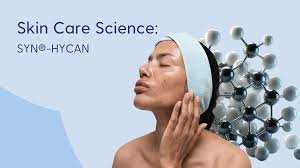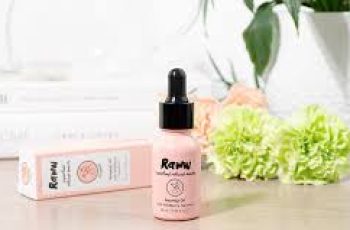
Tetradecyl Aminobutyroylvalylaminobutyric Urea Trifluoroacetate in Skin Care: A Comprehensive Exploration
Tetradecyl Aminobutyroylvalylaminobutyric Urea Trifluoroacetate :
Often referred to by its trade name SYN®-HYCAN, is a novel peptide compound that has quickly gained recognition in the skincare industry due to its powerful anti-aging and hydrating benefits.
As a cutting-edge ingredient, it is primarily used in high-performance skincare products for its ability to stimulate the skin’s natural production of hyaluronic acid (HA).
In this article, we will delve deep into what SYN®-HYCAN is, how it works within the skin, its benefits, safety considerations, and research findings that support its efficacy in achieving youthful, plump, and hydrated skin.
What is SYN®-HYCAN (Tetradecyl Aminobutyroylvalylaminobutyric Urea Trifluoroacetate)?
SYN®-HYCAN is a synthetic peptide composed of amino acids designed to specifically target the skin’s ability to produce hyaluronic acid.
Hyaluronic acid is a naturally occurring substance within the body that plays a crucial role in maintaining moisture balance and promoting structural integrity within the skin.
It is a vital component of the extracellular matrix (ECM), which is the network of proteins and structures that provide support to cells, maintain the skin’s strength, and facilitate communication between skin cells, such as fibroblasts.
By increasing the production of hyaluronic acid in the skin, SYN®-HYCAN enhances skin hydration, plumps the skin’s appearance, and improves its firmness.
Additionally, it helps reduce sagging and laxity, two common signs of skin aging.
As a peptide that acts at the molecular level, SYN®-HYCAN directly supports the fibroblast cells responsible for producing not only hyaluronic acid but also collagen and other key structural proteins that help the skin stay firm, youthful, and hydrated.
How Does SYN®-HYCAN Work?
The primary function of SYN®-HYCAN is to stimulate the production of hyaluronic acid within the skin.
It works by activating fibroblasts, the skin cells responsible for producing both collagen and hyaluronic acid.
Through this stimulation, SYN®-HYCAN enhances the skin’s ability to retain moisture, leading to improved hydration, increased skin volume, and a reduction in the appearance of fine lines and wrinkles.
When applied to the skin, SYN®-HYCAN increases the synthesis of hyaluronic acid, which is critical for several reasons:
Hydration: HA retains large amounts of water, helping to keep the skin hydrated and preventing dryness.
Plumping: Increased HA production results in plumper skin, which can improve the appearance of fine lines and wrinkles, creating a smoother, more youthful complexion.
Firmness: HA plays an essential role in maintaining the skin’s structure and elasticity. By boosting HA levels, SYN®-HYCAN helps restore skin firmness and reduce sagging.
Improved ECM Function: The extracellular matrix (ECM) is essential for maintaining the skin’s structure and integrity.
SYN®-HYCAN promotes the signaling necessary for maintaining a healthy ECM, which supports overall skin health.
Additionally, SYN®-HYCAN’s action extends beyond just hyaluronic acid production—it also enhances the function of the matrisome.
Matrisome: The Key to Skin Structure and Function
The matrisome refers to the collection of proteins, enzymes, and other molecules that make up the extracellular matrix (ECM).
The ECM is the scaffolding that provides structure to the skin and enables communication between skin cells, such as fibroblasts, keratinocytes, and endothelial cells.
The matrisome plays a crucial role in the production of collagen, glycosaminoglycans (including hyaluronic acid), and other proteins essential for maintaining the skin’s elasticity, hydration, and firmness.
When SYN®-HYCAN boosts the production of hyaluronic acid, it also enhances the overall function of the matrisome, leading to improved skin health and regeneration.
Fibroblasts within the skin interact with the matrisome to produce key molecules like collagen and hyaluronic acid.
These fibroblasts are also responsible for maintaining skin integrity by adhering to the ECM and responding to mechanical signals, which in turn triggers the production of new structural components.
The increase in hyaluronic acid synthesis stimulated by SYN®-HYCAN helps optimize this process, contributing to a smoother, more resilient skin structure.
Benefits of SYN®-HYCAN in Skin Care
The use of SYN®-HYCAN in skincare products offers several notable benefits, especially for those seeking anti-aging solutions. These benefits include:
Improved Skin Firmness: By increasing the production of hyaluronic acid, SYN®-HYCAN helps tighten and firm the skin, which can reduce the appearance of sagging and loss of elasticity.
Increased Hydration: Hyaluronic acid has the ability to bind water to the skin, keeping it hydrated and preventing dryness. This contributes to plump, smooth skin that appears youthful and glowing.
Reduced Skin Laxity: Skin laxity is a common sign of aging, where the skin becomes loose and sags. SYN®-HYCAN works to restore elasticity, making the skin appear firmer and more toned.
Enhanced Volume: As hyaluronic acid increases, skin volume improves, giving the face a fuller, more youthful appearance.
Smoother Texture: By improving skin hydration and structure, SYN®-HYCAN contributes to a smoother skin texture, reducing the appearance of fine lines and wrinkles.
“Jelly-like” Skin: With improved hydration and volume, the skin may take on a more bouncy, firm texture often described as “Jelly-O skin,” which is associated with youthful skin.
These benefits make SYN®-HYCAN a desirable ingredient in both anti-aging serums and treatments designed to promote skin health and appearance.
Safety Considerations and Side Effects
SYN®-HYCAN is generally well-tolerated by most skin types, with minimal reported side effects.
However, like all skincare ingredients, it’s important to consider the safety profile and potential reactions for sensitive individuals.
One notable concern with SYN®-HYCAN is its Environmental Working Group (EWG) safety rating.
The ingredient has received a relatively poor safety score of 10 from the EWG, which is the highest possible rating on their scale, indicating that it may be hazardous to health.
This rating is primarily due to the inclusion of trifluoroacetate, a fluorinated compound classified as a PFA (Per- and Polyfluoroalkyl Substance).
PFAs are known for their persistence in the environment and have been linked to potential health risks, such as bioaccumulation and toxicity.
Despite this, there are differing opinions about the safety of SYN®-HYCAN. While it is widely used in high-end skincare products, the concerns about its PFA component are still being investigated.
The ingredient is generally considered safe for topical use in the concentrations found in cosmetic products, but individuals with sensitivities or concerns about environmental impact may want to proceed cautiously.
Research Studies Supporting SYN®-HYCAN’s Efficacy
A number of clinical studies have investigated the efficacy of SYN®-HYCAN in boosting hyaluronic acid production and improving skin health. Some key studies include:
Widgerow et al. (2022): This study demonstrated that SYN®-HYCAN stimulates the production of high molecular weight hyaluronic acid, which has anti-inflammatory and regenerative properties.
The peptide was shown to improve skin hydration and regeneration, promoting a healthier extracellular matrix.
Garre et al. (2017):
An open-label clinical trial testing SYN®-HYCAN-based products on 33 women aged 45-65 showed significant improvements in facial contour, skin firmness, hydration, and elasticity after 56 days of use.
Participants also reported subjective improvements in skin texture.
Gempeler et al. (2018): This study explored the impact of SYN®-HYCAN on dermal remodeling.
The peptide was shown to enhance skin volume and firmness, with over 87% of participants reporting smoother, more supple skin and nearly 70% experiencing improved elasticity.
Conclusion: The Future of SYN®-HYCAN in Skin Care
SYN®-HYCAN represents one of the most exciting breakthroughs in anti-aging skincare.
By significantly boosting the production of hyaluronic acid in the skin, it helps address multiple signs of aging, including dryness, sagging, and fine lines.
Its ability to enhance skin firmness, volume, and hydration makes it an invaluable ingredient in modern skincare formulations.
While there are some concerns regarding its environmental impact and the safety of trifluoroacetate, SYN®-HYCAN remains a highly effective anti-aging ingredient.
The numerous studies supporting its efficacy demonstrate its potential in transforming the skin and offering a non-invasive solution to the challenges posed by aging.
As always, it’s important for individuals to understand their skin type and choose products that are compatible with their specific needs.
If you’re looking to incorporate SYN®-HYCAN into your skincare routine, consult with a dermatologist or skincare professional to ensure it’s the right fit for you.
Incorporating SYN®-HYCAN into your skincare regimen could lead to noticeable improvements in skin hydration, volume, and elasticity, contributing to a smoother, more youthful appearance.


